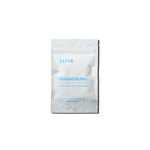Transform Your Sleep with These Caffeine-Free Strategies
Sleep is as essential to our health as food and water, yet many of us struggle to get enough of it, often turning to caffeine to combat fatigue. However, this can create a vicious cycle of disrupted sleep patterns and increased reliance on stimulants. If you’re caught in this loop of poor sleep and high caffeine consumption, fear not. Here, we explore practical, caffeine-free strategies to enhance your sleep quality and increase your energy levels naturally.
- Establish a Relaxing Bedtime Routine
- Optimise Your Sleep Environment
- Incorporate Physical Activity into Your Day
- Mind Your Diet
- Try Relaxation Techniques
- Manage Stress Levels
Establish a Relaxing Bedtime Routine
Starting your journey towards better sleep with a consistent bedtime routine is crucial. This signals to your body that it’s time to wind down and prepare for sleep. Try activities that relax you, such as reading a book, taking a warm bath, or listening to calm music.
Optimise Your Sleep Environment
Your bedroom should be a sanctuary designed for sleep. Key factors to consider include lighting, noise, and temperature. The ideal sleeping environment is cool, quiet, and dark. Blackout curtains, eye masks, and white noise machines can be incredibly effective. Furthermore, investing in a comfortable mattress and pillows can significantly improve your sleep quality.
Incorporate Physical Activity into Your Day
Regular physical activity can help you fall asleep faster and enjoy deeper sleep. Timing is important, though; exercising too close to bedtime can have the opposite effect. Preferably, try to complete any vigorous activity at least three hours before you go to bed. Exercising promotes more restorative sleep and can ease the transition into and out of REM sleep, making your sleep cycle smoother.
Mind Your Diet
What you eat impacts your sleep. Heavy meals close to bedtime may lead to discomfort and indigestion, which can interrupt your sleep. Focus on meals that combine high-fibre carbohydrates and lean protein with healthy fats to promote fullness and satisfaction without overtaxing your digestion. Consider incorporating sleep-promoting foods into your evening meal, such as cherries, almonds, or oatmeal, which are known for their sleep-enhancing properties.
Try Relaxation Techniques
Relaxation techniques such as mindfulness, meditation, and deep-breathing exercises can reduce stress and improve your sleep. Mindful meditation leads to improvements in sleep quality among middle-aged and older adults who struggle with sleep disturbances.
Manage Stress Levels
Finally, it’s critical to address and manage stress, a common culprit behind sleep issues. Practical methods to manage stress include journaling, connecting with friends or family, and professional counselling. Reducing your overall stress load can lead to better sleep and reduced reliance on caffeine to manage your energy levels.
Conclusion
Enhancing sleep quality without relying on caffeine involves a holistic approach, focusing on lifestyle changes, diet adjustments, and stress management. By implementing these strategies, not only can you expect to see improvements in your sleep, but also a natural increase in energy levels and overall well-being. Challenge yourself to try these changes and observe the benefits they may bring to your life. Remember, the journey to better sleep is a personal one, and small adjustments can make a significant impact.










